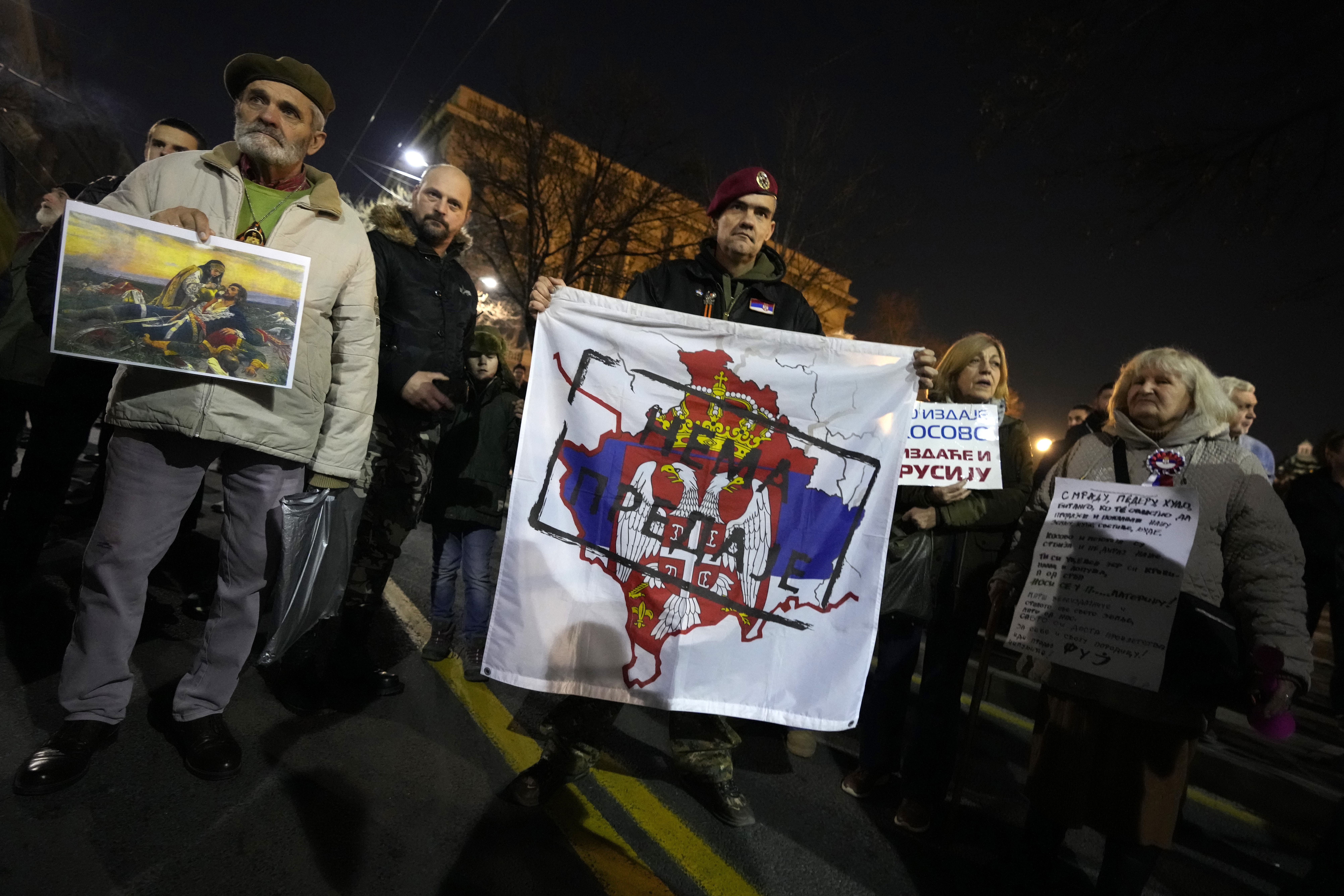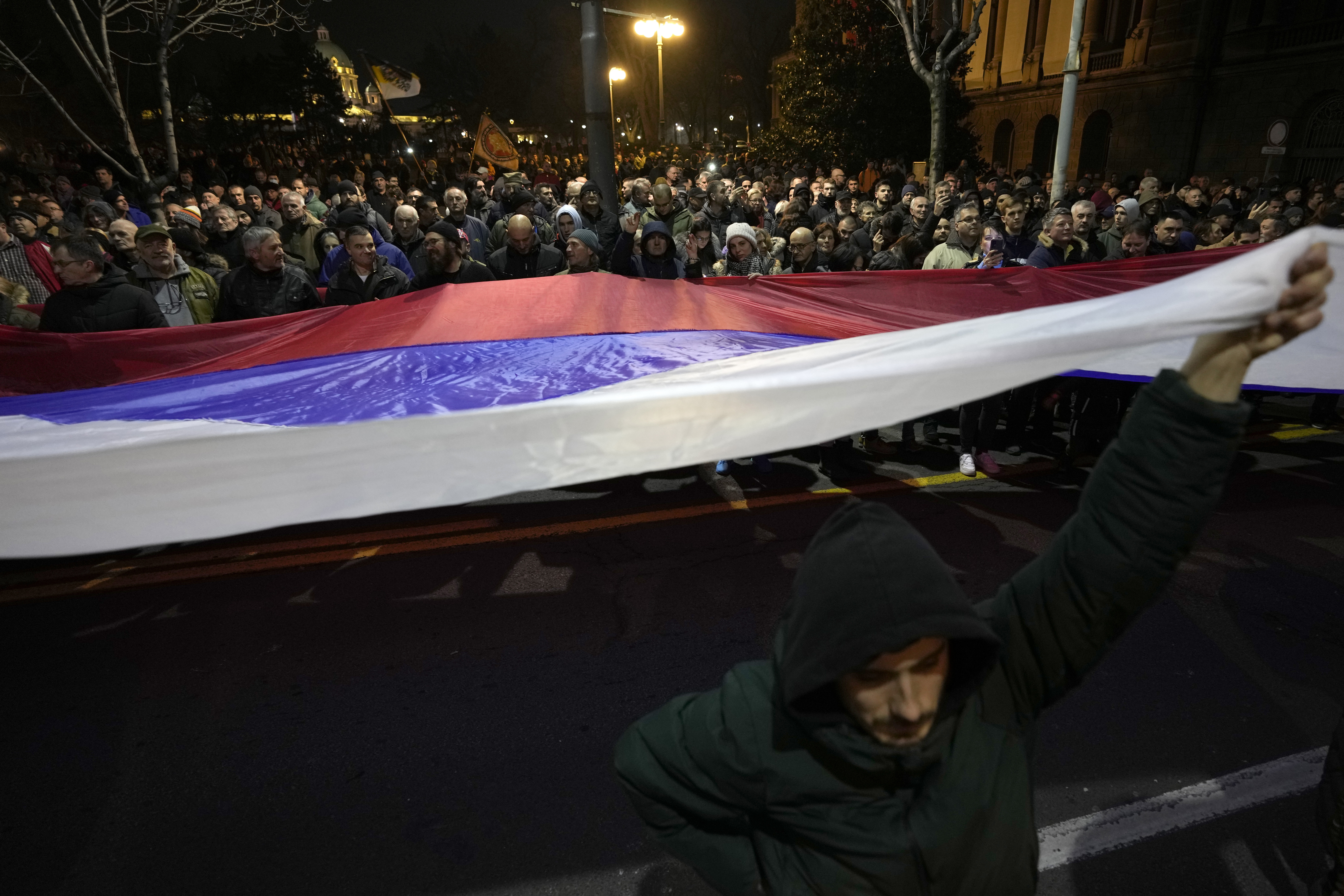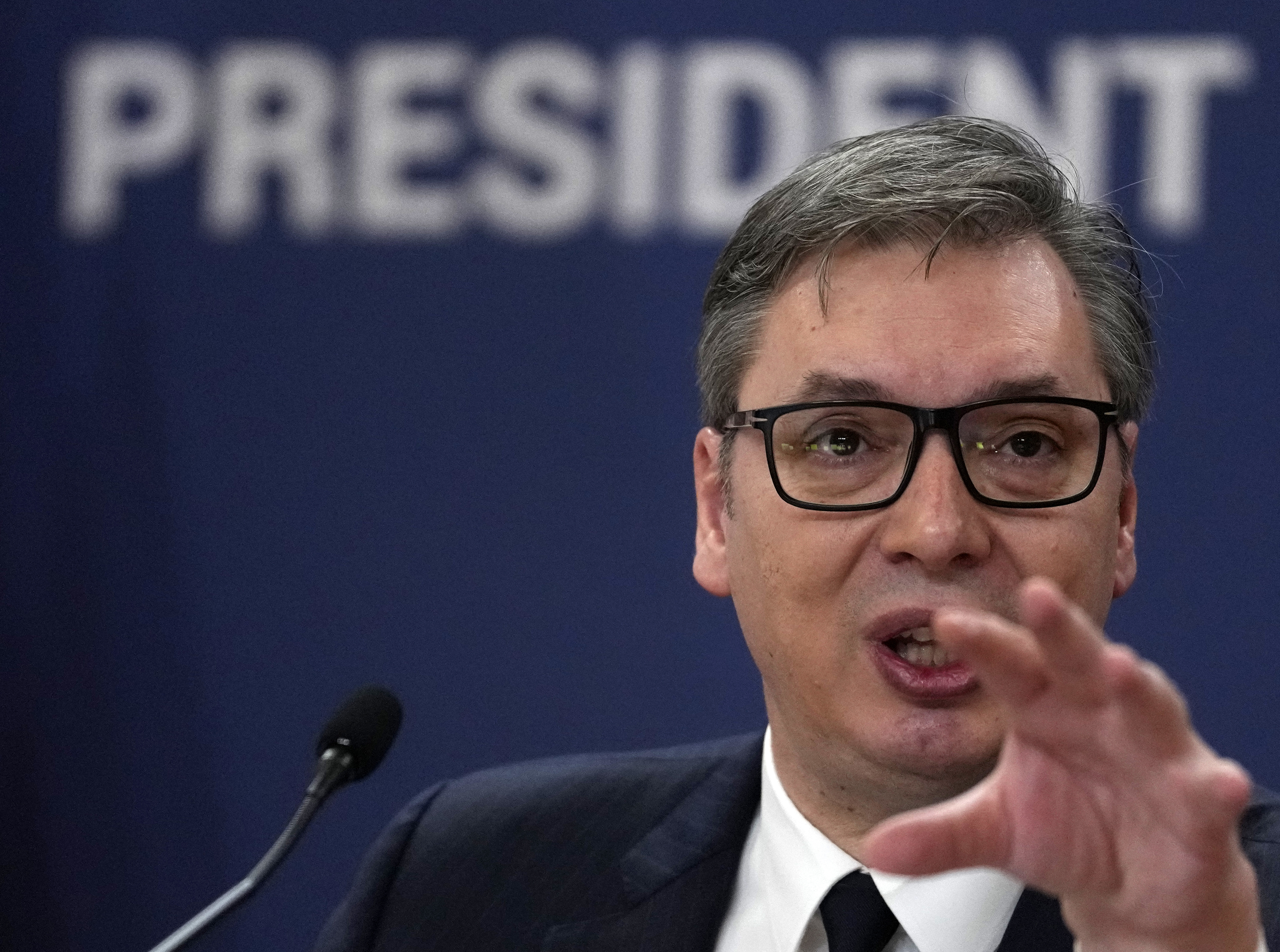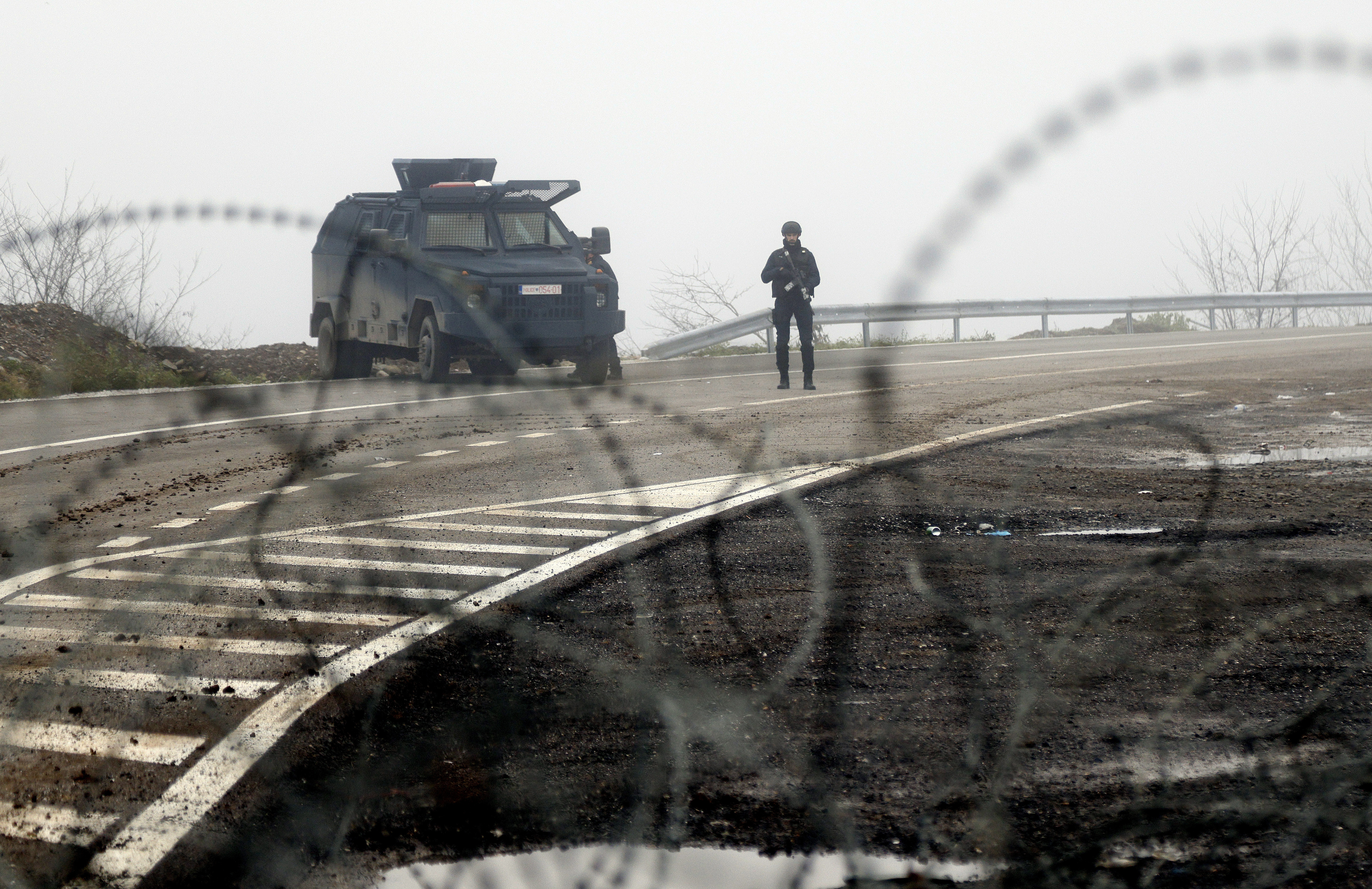Hundreds of Serbian nationalists have rallied in Belgrade, demanding that President Aleksandar Vucic reject a Western plan to normalise ties with breakaway Kosovo, and pull out of negotiations.
It adds to fears the conflict could continue to simmer on Europe's edge, potentially igniting into an armed clash.
Shouting "Treason" and carrying banners reading "No surrender," the right-wing protesters blocked traffic as they gathered near the Serbian presidency building in central Belgrade.
READ MORE: Almost 900,000 hurtling towards $350 million cliff

The protesters are also strongly pro-Russian, and one banner read: "Betrayal of Kosovo is betrayal of Russia!"
Serbian media reported that one group pushed though metal fences toward the entrance at the end of the rally but was prevented by riot police from reaching the door.
The protest comes amid efforts by US and European Union officials to mediate a solution for the long-standing dispute between Serbia and Kosovo, a former Serbian province whose 2008 declaration of independence Belgrade does not recognise.
Serbia has relied on Russia and China in its refusal to acknowledge Kosovo's independence, which is backed by Washington and most EU countries.
READ MORE: Residents bracing for temperature recorded only twice in history

Western officials fear Russia could use simmering tensions in Kosovo to try to destabilise the Balkans and avert some attention from the invasion of Ukraine.
A NATO-led international peacekeeping force remains in Kosovo.
Australian expert Dr Gorana Grgic has told nine.com.au Putin would "welcome" any destabilisation of Western plans to integrate with the Western Balkans.
At the end of last year, fears of a second armed conflict in Europe flared up as Serbian troops were placed in combat residence on the Kosovo border.
READ MORE: Driver charged after teen killed in horror bus crash

Vucic ultimately stood the country's forces down, but it prompted this urgent tour of the region by US and EU officials bent on negotiating normalisation.
The populist president has said he was ready to consider the Western plan.
Its provisions have not been published but it reportedly stipulates that Serbia would not object to Kosovo's membership in international institutions, including the United Nations.
In Kosovo's capital Pristina late Wednesday, scores of students protested peacefully against aspects of the proposed agreement with Serbia.
In Serbia, pro-Russian right-wing groups have demanded that Belgrade stop all negotiations over Kosovo and publish the Western plan.
READ MORE: Man found clinging to esky off Aussie coast charged over 365kg haul
Vucic has said this would mean the end of Serbia's integration into the EU and the country's international isolation.
Serbia formally seeks EU entry but Vucic has also nurtured close ties with Moscow.
Serbia remains the only country in Europe that has not joined sanctions against Russia, though it has condemned the invasion.
Kosovo declared independence after a war in 1998-99 that killed around 13,000 people.
Following an armed uprising by ethnic Albanian separatists, Serbia responded with a brutal crackdown that ended after a NATO bombing campaign.

The Serbian Council of Australia, a peak representative body of the Serbian-Australian community, said there were concerns about the prospects of stability in the region.
"SCOFA calls on the Australian Government to echo messages of peace in relation to the situation in Kosovo and Metohija," the organisation said in a statement.
"Australia is a model of a stable and peaceful democracy in an era where international rules are continually being challenged."
Sign up here to receive our daily newsletters and breaking news alerts, sent straight to your inbox.
